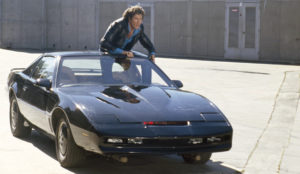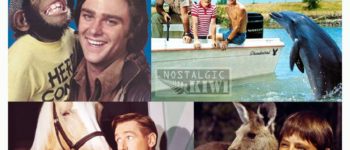1970s: Anthropomorphic Television Demigods
November 17, 2018
By AHNZ
What was this media phenomena and who consumed it?
“Why can’t we have good wholesome shows like that now?” asks a commenter.
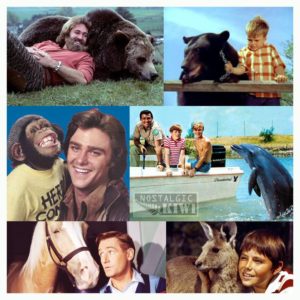 That is a very good question, I’ll take a shot.
That is a very good question, I’ll take a shot.
What it was: Anthropomorphic horses, bears, orangutans, chimps, dophins, kangaroos, elephants, dogs; Lassie, Ben, Mr Ed, Flipper, Skippy, Littlest Hobo etc. Behind the artistic, these animals were human characters who could think and act. Sometimes they had supernatural powers, often they exceeded or at least rivalled human intellect, emotional intelligence, and ability. They were demigods; Protagonists and antagonists are identifiable in terms of how the recognise or fail to recognise this.
Secular Pagan TV Critters
Who consumed this fantasy? Generation X, born apx .1961 – 1981,  the time of all these shows. Their Boomer parents had turned away hard from religion, leaving the way clear for these secular pagan TV critters (experiment: Mention religion to a Boomer in 2018 and observe the scorn-rant ensue!) This was also the time of the Silver Age of comic books; Same thing in newsprint as we are discussing here on celluloid. Without God, The West was almost literally turning back once again to animal worship just like the Pagans before. Or, if you know your Bible, as the ancient Israelites did when Moses’ back was turned.
the time of all these shows. Their Boomer parents had turned away hard from religion, leaving the way clear for these secular pagan TV critters (experiment: Mention religion to a Boomer in 2018 and observe the scorn-rant ensue!) This was also the time of the Silver Age of comic books; Same thing in newsprint as we are discussing here on celluloid. Without God, The West was almost literally turning back once again to animal worship just like the Pagans before. Or, if you know your Bible, as the ancient Israelites did when Moses’ back was turned.
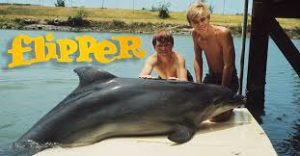
Without God, The West was almost literally turning back once again to animal worship just like the Pagans
I guess ‘Skippyflipper the Golden Calf’ was a bit too on the nose for a TV pitch? Would have gone down well for first world Hindus! And Lassie fairly golden….so was Clint Eastwood’s orangutan…
The Death of Skippyflipper
Why did it end? By the time of the Millennials, the ’80s, some of the animal gods energy had gone into robot gods (eg Knightrider, Terminator, Short Circuit, Robocop, Star Wars droids,..). Our suspension of disbelief was now elastic enough to let machines be emotionally and intellectually and physically divine, and the state of technology backed that up increasingly. As time went on it became increasingly plausible to our conscience to vest these supernatural  properties in human heroes again too. Initially they were cold-blooded detectives with flawed, robotic, quirky, personal lives but with android-excellent job performance (eg Ironside, Sledgehammer,..) MacGyver and Star Trek got a pass by offering the audience enough technobabble monologue that (prior to Myth Busters wiseing us up) satisfied our pre frontal cortex so the rest of our brain could consume the parables.
properties in human heroes again too. Initially they were cold-blooded detectives with flawed, robotic, quirky, personal lives but with android-excellent job performance (eg Ironside, Sledgehammer,..) MacGyver and Star Trek got a pass by offering the audience enough technobabble monologue that (prior to Myth Busters wiseing us up) satisfied our pre frontal cortex so the rest of our brain could consume the parables.
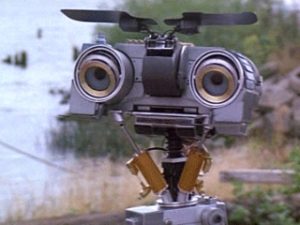
Short Circuit (1986) had its finger on the pulse. Animals out; Robots in!
Only Flawed Humans Need Apply
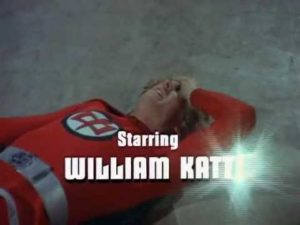 Otherwise, the extent to which we could not suspend our disbelief would be compensated for with flaws on the part of the hero who otherwise is godlike. Eg. The Greatest American Hero kept tripping over his cape, Dr. House MD a lame-leg addict. This is more or less where we are in history now. Not quite done with gods, not yet able to accept our full human potential unless our Jesus-like hero bears the cross of some sin or flaw for us (because it is ours; Our ‘trigger’) so that we can existentially get on with life with conviction and meaning.
Otherwise, the extent to which we could not suspend our disbelief would be compensated for with flaws on the part of the hero who otherwise is godlike. Eg. The Greatest American Hero kept tripping over his cape, Dr. House MD a lame-leg addict. This is more or less where we are in history now. Not quite done with gods, not yet able to accept our full human potential unless our Jesus-like hero bears the cross of some sin or flaw for us (because it is ours; Our ‘trigger’) so that we can existentially get on with life with conviction and meaning.
The portrayal of an ideal, fully human, fully alive, virtuous hero has been attempted by Ayn Rand. The mainstream has so far not been ready to digest such an ideal without getting a very sore tummy.
Image ref. Nostalgic Kiwi
 Like Comment Share
Like Comment Share

